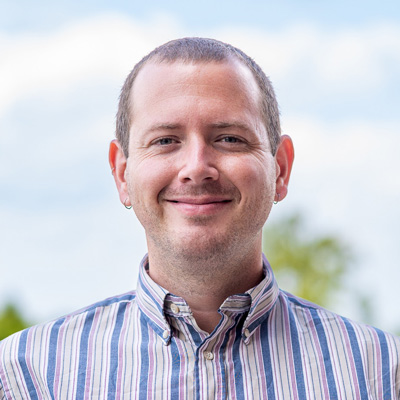Adam Waterbury grew up in Southern California and attended Pomona College as an undergraduate. After taking linear algebra his first year at Pomona, he knew that he wanted to study mathematics, and, after taking a course in probability theory, he became interested in probability and statistics. After graduating from college, he moved to North Carolina to pursue his Ph.D. in Statistics and Operations Research from the University of North Carolina at Chapel Hill. Then, after graduating from UNC, he spent two years as a Visiting Assistant Professor at the University of California, Santa Barbara. Adam has worked with undergraduate students on a wide range of research projects in statistics, data science, and probability. Adam joined the Denison University Mathematics Department in 2023, after moving to Columbus with his wife Candice and their two pet cats. Outside of work, Adam enjoys hiking and spending time in nature, attending concerts, and watching movies.
Learning & Teaching
- MATH 120 - Elements of Statistics
- MATH/DA 220 - Applied Statistics
- Visiting Assistant Professor - University of California, Santa Barbara (2021 - 2023)
- Assistant Professor - Denison University (2023 - )
Research
Some of the questions that one might want to answer about the long-term behavior of random processes include "If a long time passes, will the system eventually approach some steady state?", "If such a steady state is eventually approached, how can we characterize the system's fluctuations around that state?", and "How can we estimate the likelihood that the system will, even after a long time passes, still be far from its eventual steady state?" These questions can be formulated in terms of laws of large numbers, central limit theorems, and large deviation principles, respectively. In his research, Adam has established such results for stochastic approximation algorithms, empirical measures associated with reinforced processes, and stochastic ecological models.
Adam has also worked on research projects with undergraduate students in statistics, data science, political science, and mathematics. Some such projects include "Computer Vision and Neural Networks in Mantis Shrimp Tracking" and "Monte Carlo Methods for Reinforcement Learning."
